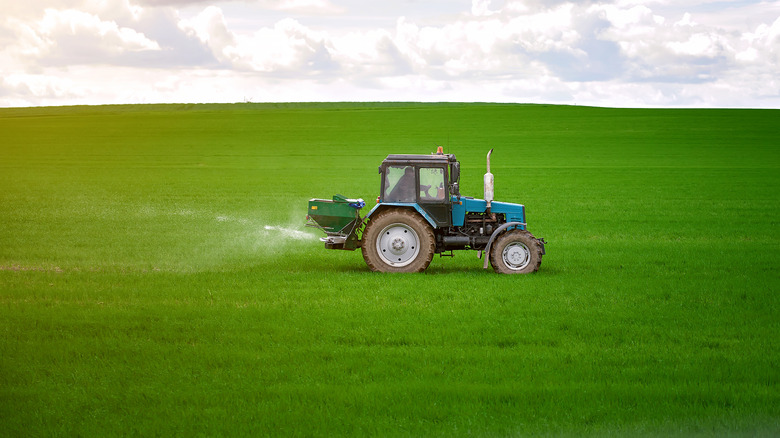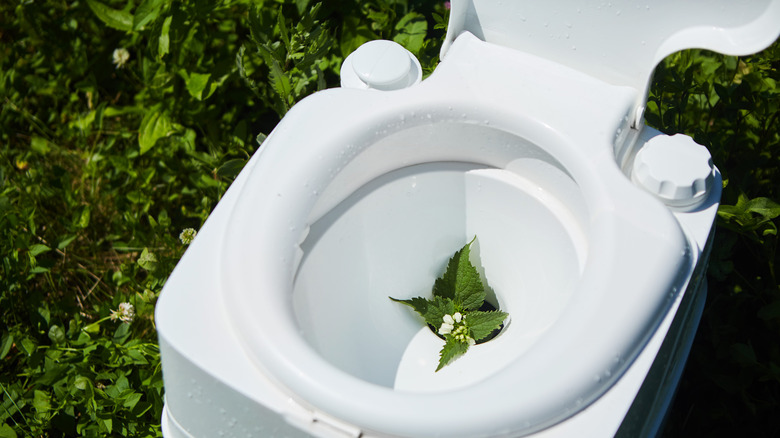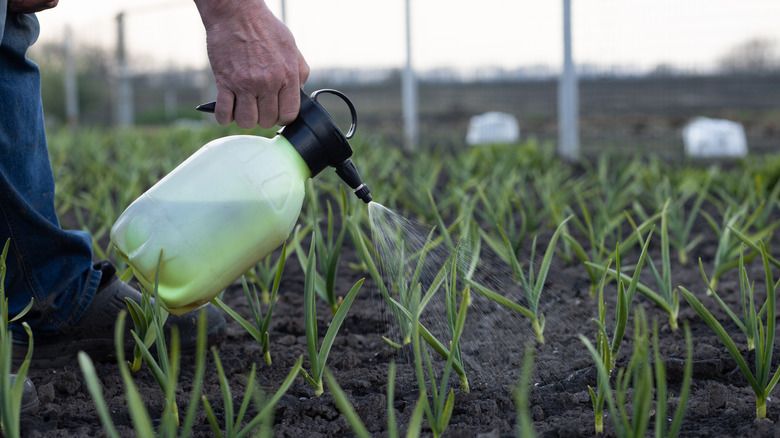The Solution To The Fertilizer Shortage May Be More Accessible Than You'd Think
The human devastation caused by Russia's ongoing war with Ukraine is immense, with an undetermined number of casualties and at least 11 million people displaced according to United Nations estimates. The financial damage of the war is even wider spread and has the potential to cost even more lives. This is because Russia and Ukraine are major players in the global food market. According to The Conversation, the two nations are both top producers of cereal crops — wheat, barley, corn, and rice — as well as sunflower products, but with Ukraine's production and shipping capabilities drastically reduced and Russia's economy subject to crippling sanctions by the U.S., the EU, and their allies, the world could soon be facing a food shortage.
Already, the economic impact has been very visible as food prices have risen rapidly. Between rising fuel costs, shortages of grain used for everything from bread to animal feed, food prices are expected to continue climbing (per the USDA). But there is one more factor that could create long term problems for the global food supply. As farmers in other nations attempt to make up for the lack of grains from Russia and Ukraine, fertilizer is in short supply since, according to CNBC, Russia, its ally Belarus, and Ukraine together produce nearly 30% of the world's fertilizers made from nitrogen, phosphorous, and potassium. With all the issues compiling, it may be time to try and find an alternative to chemical fertilizers. Luckily, scientists in France are already working on an unconventional option.
A solution in our own homes
France 24 reported in April that long before the war in Ukraine began, engineer Fabien Esculier had been doing research on an all-natural method of fertilization, one he was inspired to explore by his grandmother who would tell him as a child in the summer to "pee on the rhubarb." As gross as it may sound, the idea makes sense chemically. Fertilizers have heavy concentrations of nitrogen, potassium, and phosphorus, all of which are present in our food and excreted from our bodies through urine. While Esculier began his research looking for ways to fight chemical pollution caused by industrial fertilizers, his research has garnered new attention in light of the current world shortage.
While France 24 notes that switching to this more natural form of fertilizer could potentially reduce our need for industrial fertilizers by 13%, it would be a difficult transition, since the world's current wastewater processing systems are not equipped to isolate and collect urine. In order to do that, we would need new toilet systems. Euronews explains that the concept of a toilet that separates out urine was first experimented with in Sweden in the 1990s, but the devices were seen as ugly and impractical. Fortunately, more recent iterations are reportedly receiving more positive feedback and are now being used in tests in France, the U.S., India, South Africa, Ethiopia, and Mexico.
Overcoming stigma
While improved designs may be making this idea more possible, there are still hurdles to overcome. France 24 explains that installing urine-separating toilets, which use less water and separate urine from solid wastes before sending it down a special pipe into an underground cistern before being piped to a treatment facility, requires entirely new plumbing systems to be built, and Euronews notes that the idea of using human waste as fertilizer carries an unpleasant stigma in certain parts of the world. While tests in China, France, and Uganda were very positively received, Jordan and Portugal were far less receptive to the concept.
While there could be a social taboo around the subject, the World Health Organization notes that urine does not carry disease and can easily be treated or pasteurized to make it safer. For small scale gardeners, Rich Earth Institute even created a guide for using urine on crops which includes advice from the WHO and U.S. EPA.
Although this solution may not be ready for use in large-scale farming today, the war in Ukraine has served as a reminder that our farming practices may need to be reconsidered to ensure food security and environmental sustainability moving forward, and the solution may be as close as our own bathrooms.


